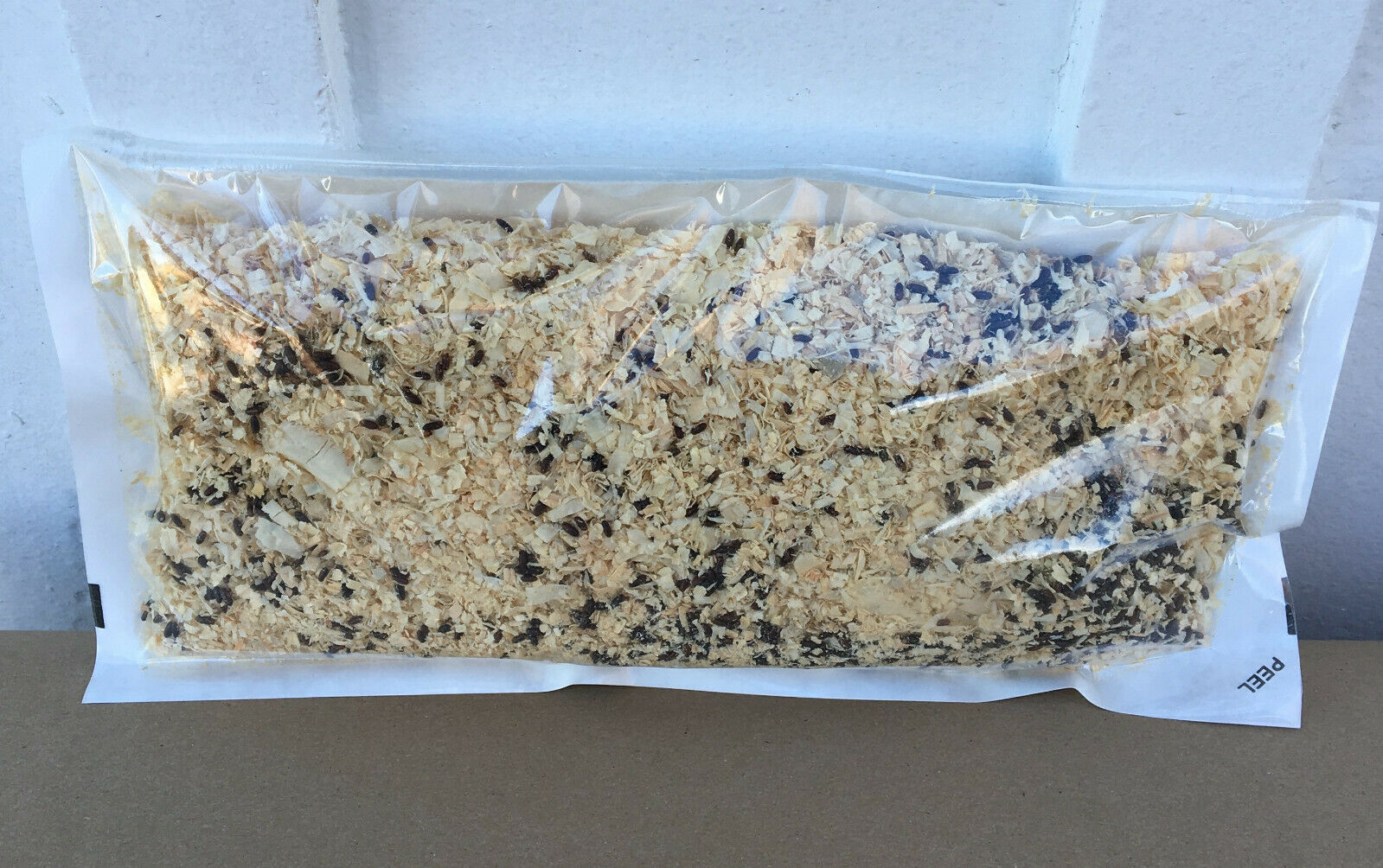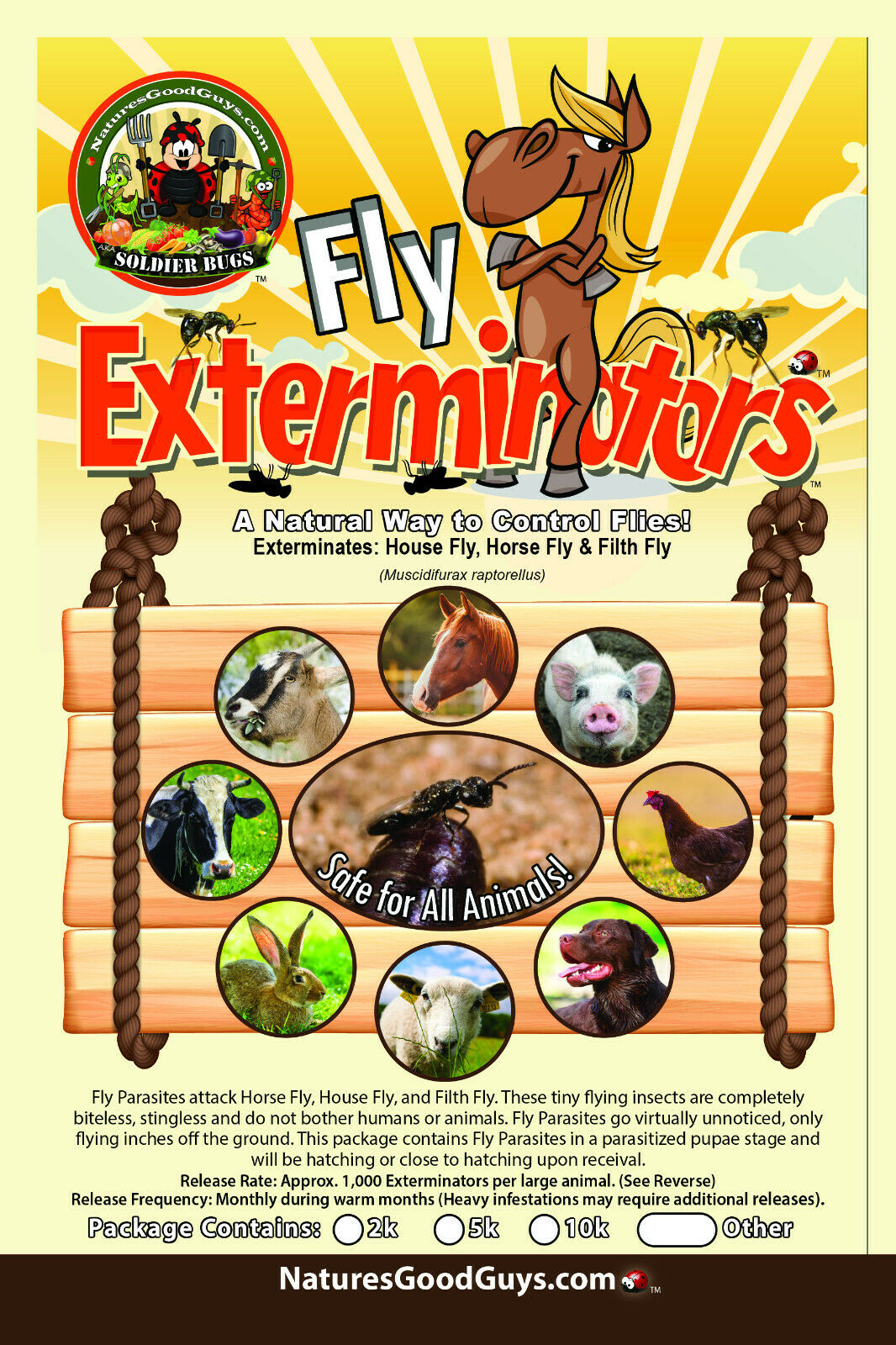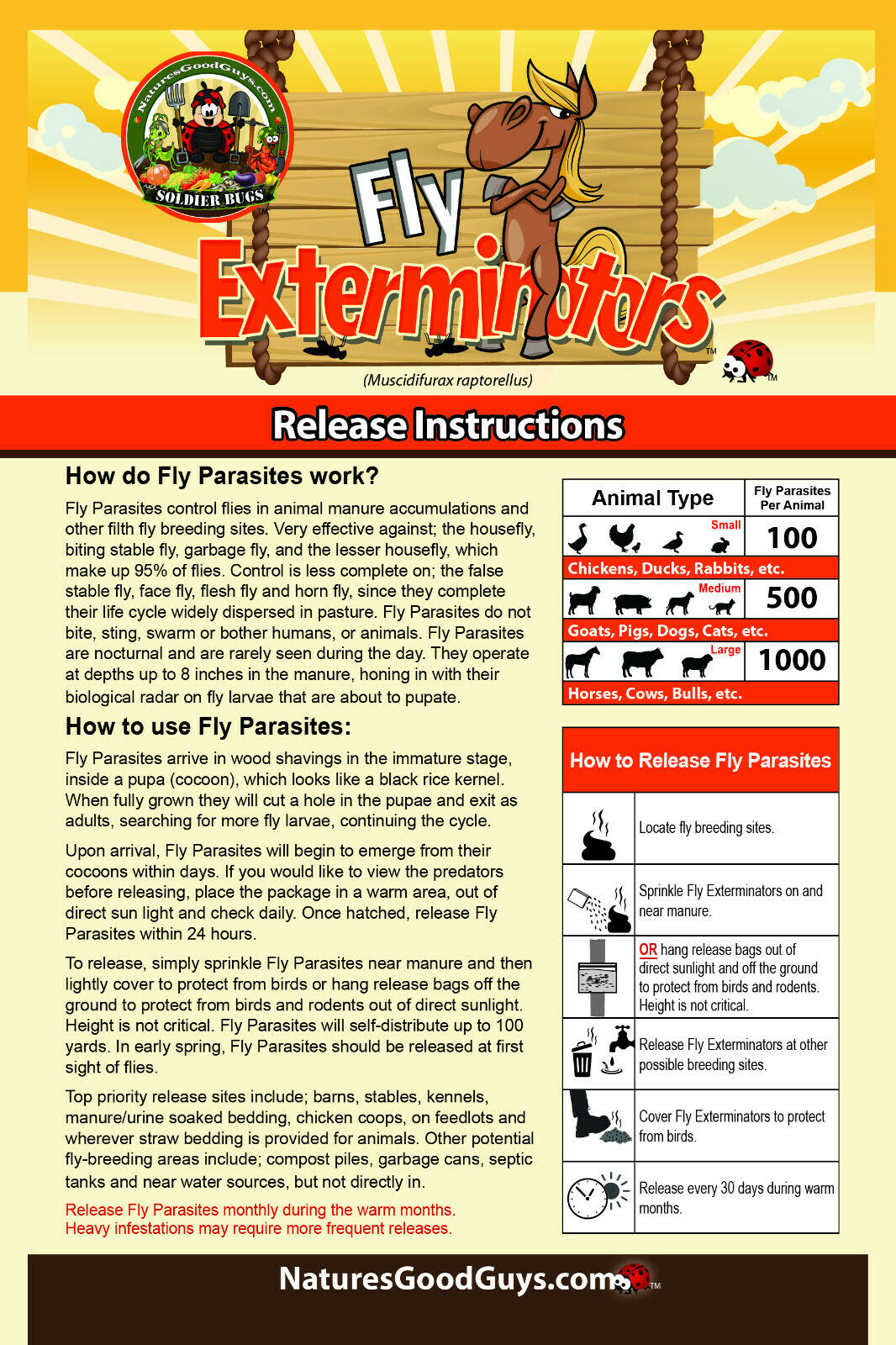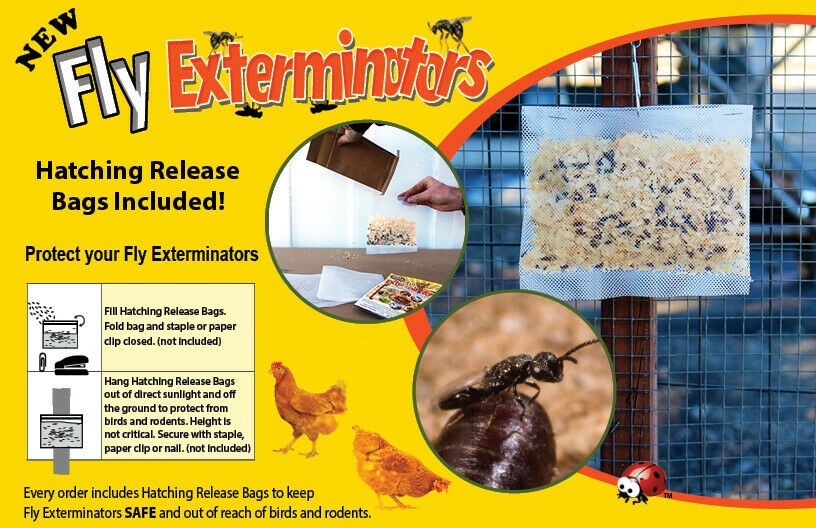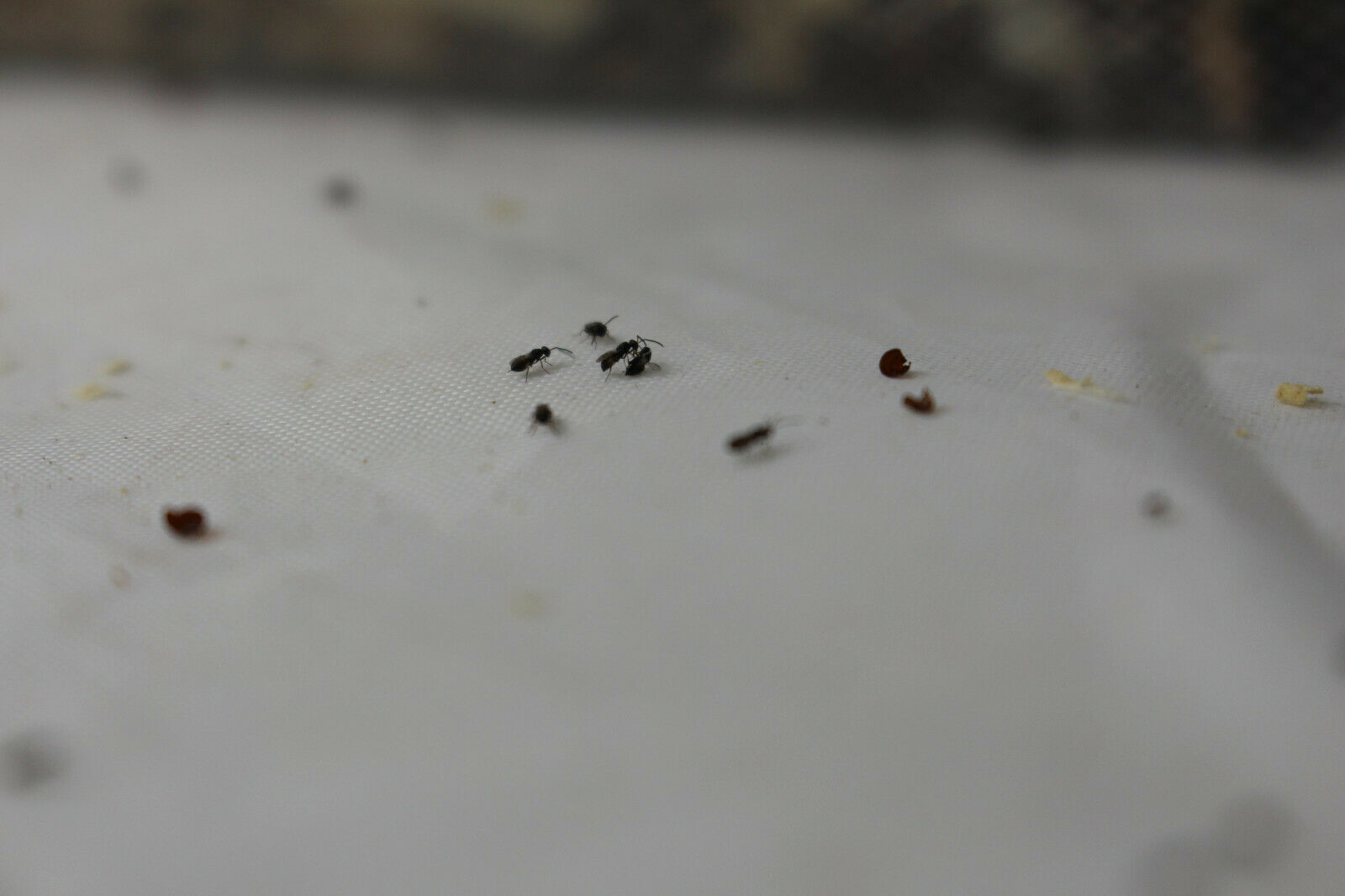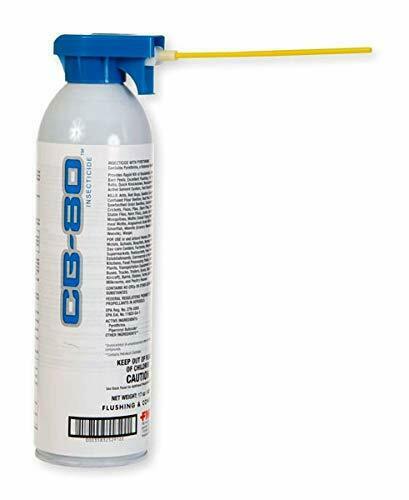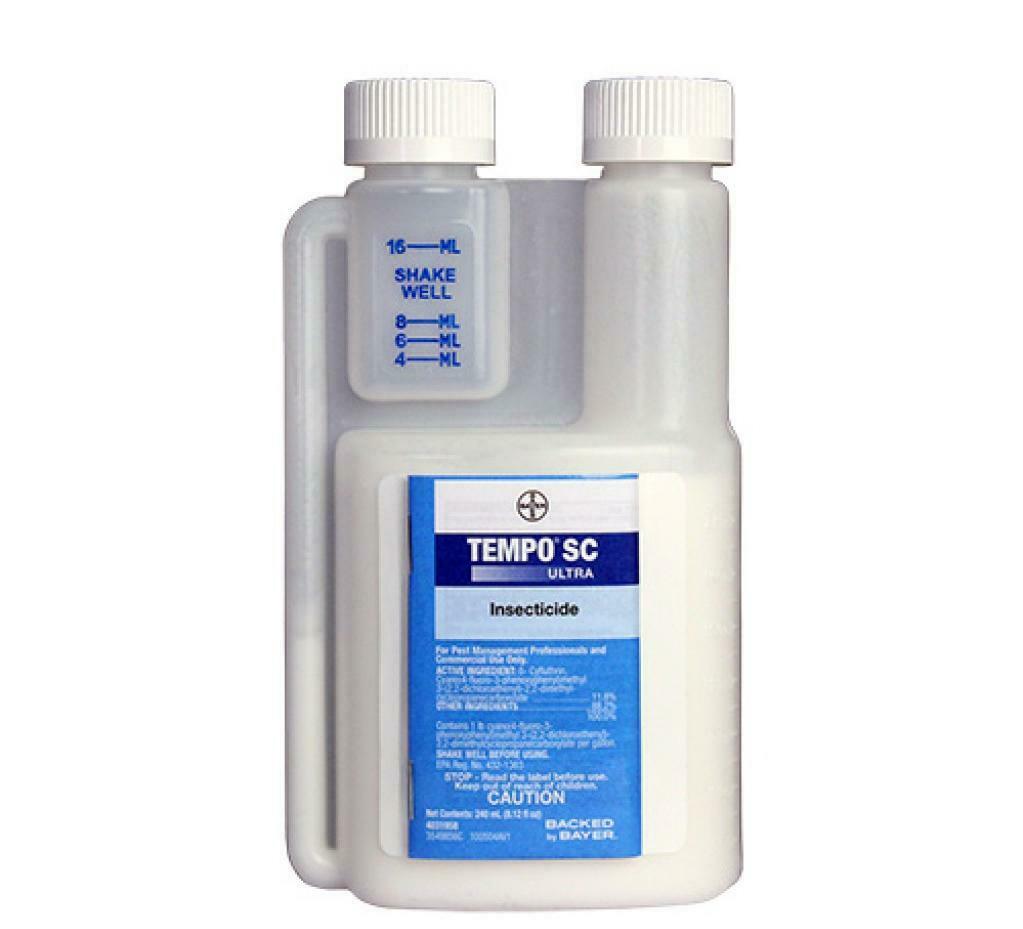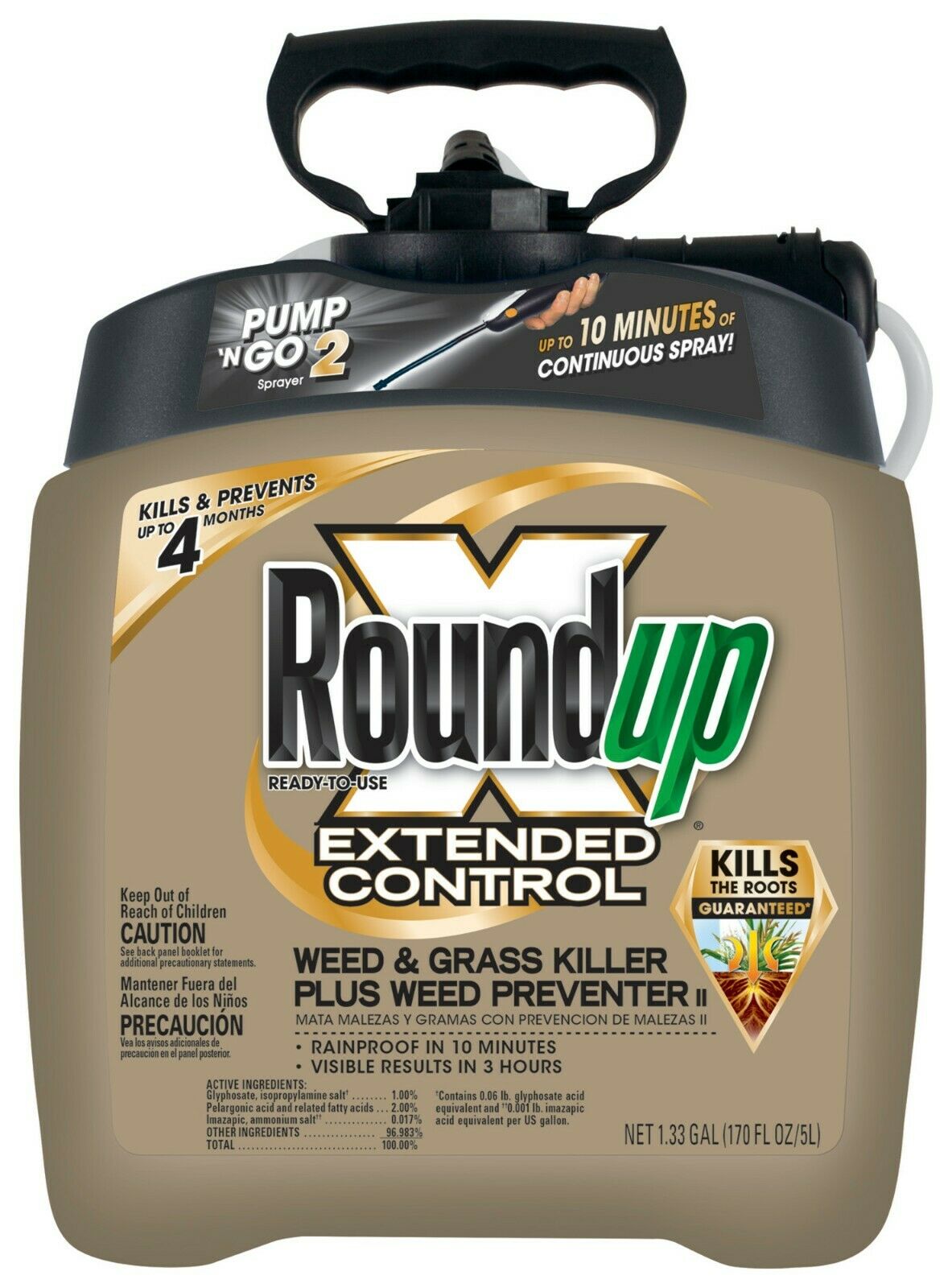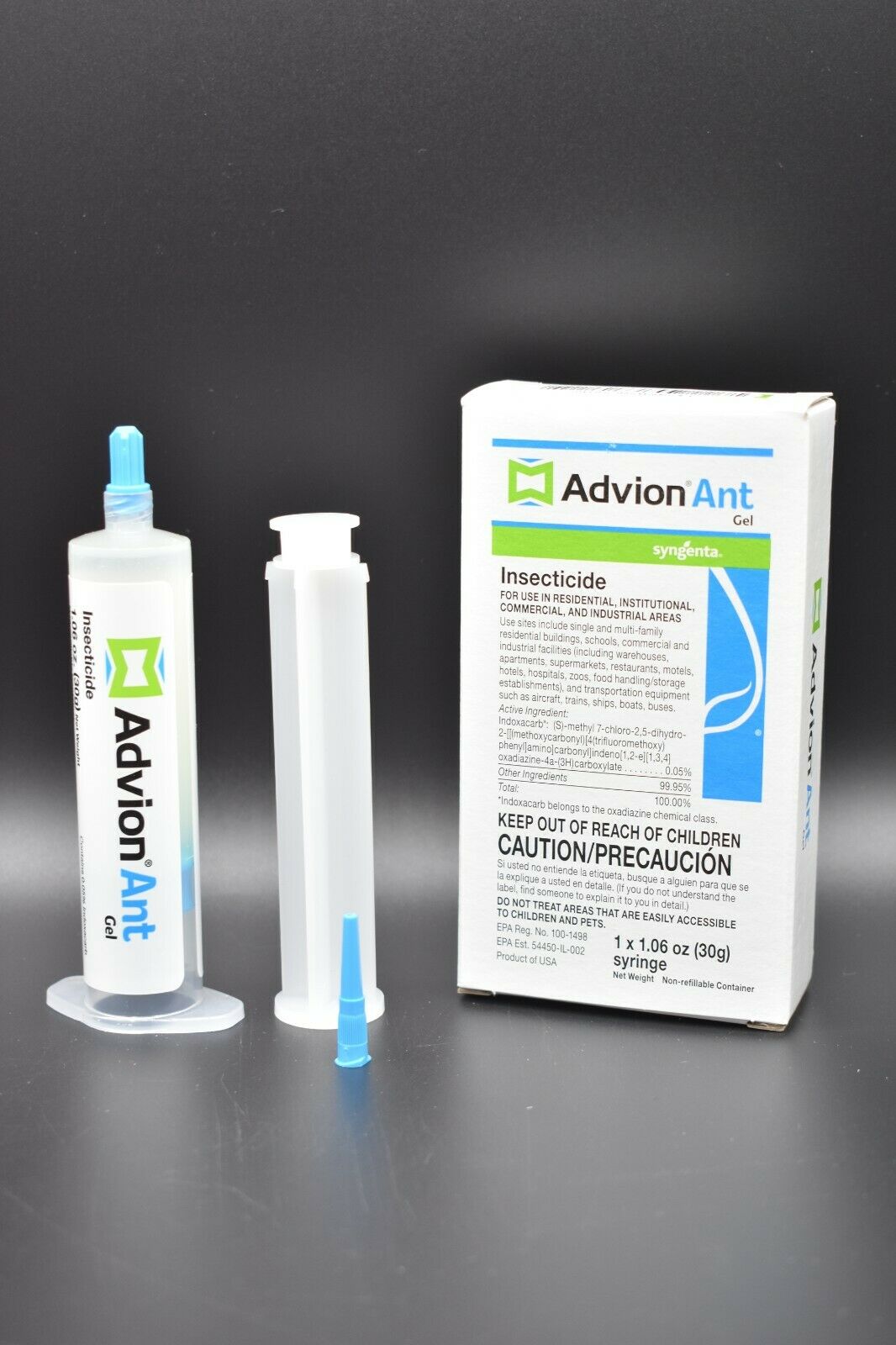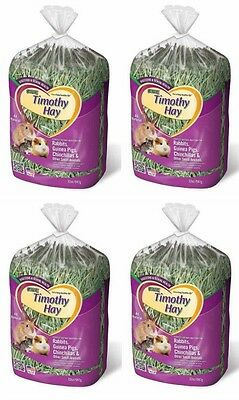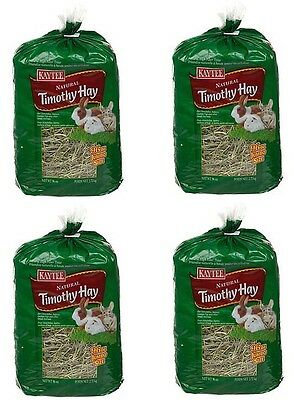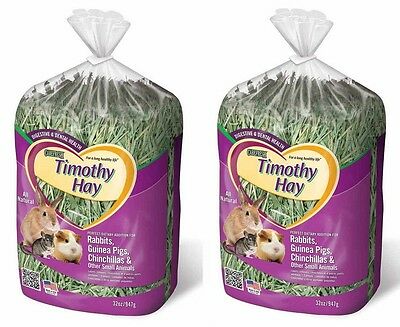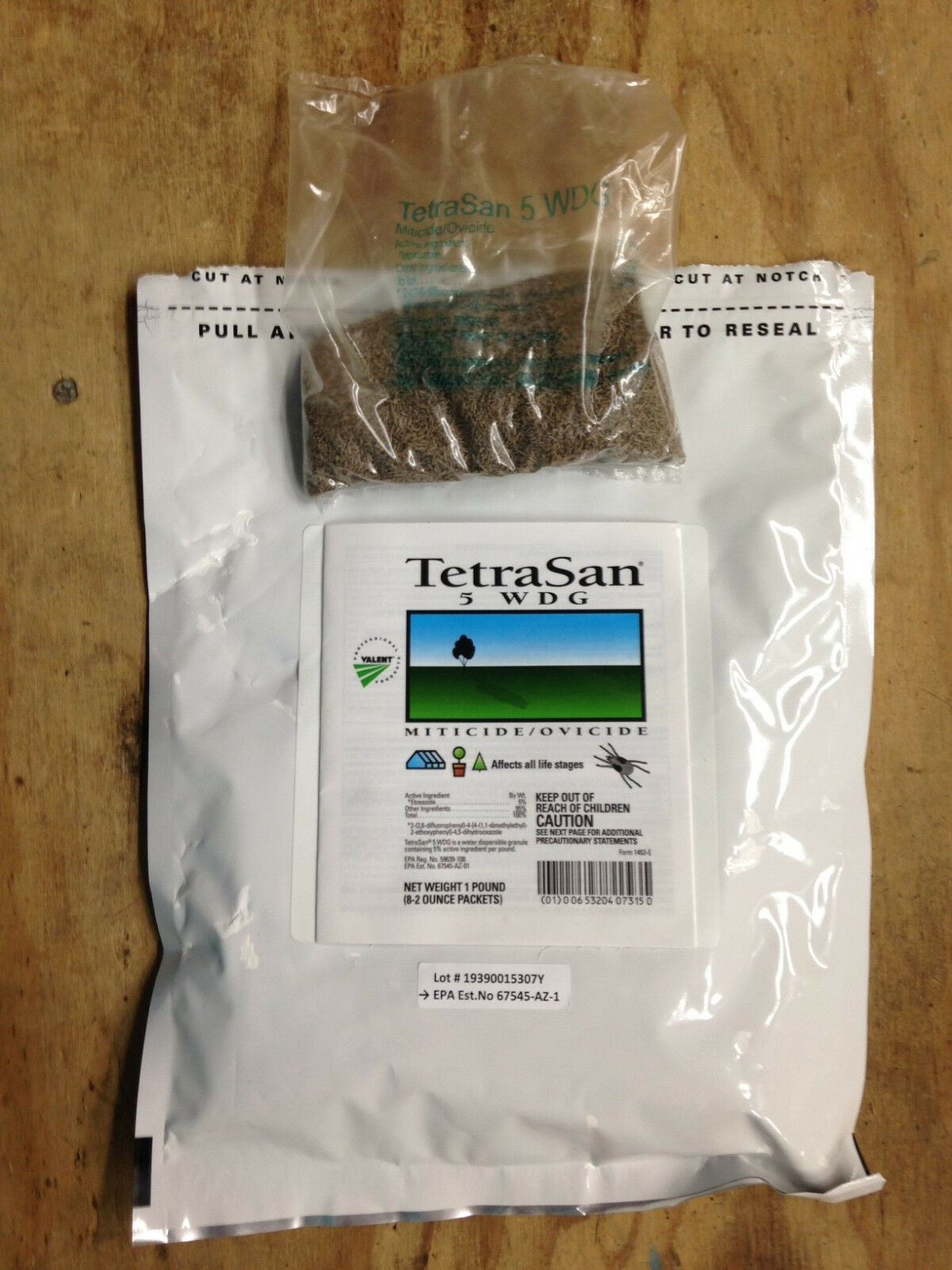-40%
NaturesGoodGuys Natural Fly Control Fly Exterminators 50,000 Predators
$ 36.95
- Description
- Size Guide
Description
How to Release Fly Parasites:To release, simply sprinkle Fly Parasites near manure and then lightly cover to protect from birds or hang release bags off the ground to protect from birds and rodents out of direct sunlight. Height is not critical. Fly Parasites will self-distribute up to 100 yards. In early spring, Fly Parasites should be released at first sight of flies.
Top priority release sites include; barns, stables, kennels, manure/urine soaked bedding, chicken coops, on feedlots and wherever straw bedding is provided for animals. Other potential fly-breeding areas include; compost piles, garbage cans, septic tanks and near water sources, but not directly in.
*Release Fly Exterminators monthly during the warm months. Heavy infestations may require more frequent releases.
*Every order includes Hatching Release Bags to keep fly Exterminators SAFE and out of reach of birds and rodents.
Fly Parasites attack Horse Fly, House Fly, and Filth Fly. These tiny flying insects are completely biteless, stingless and do not bother humans or animals. Fly Parasites go virtually unnoticed, only flying inches off the ground. This package contains Fly Parasites in a parasitized pupae stage and will be hatching or close to hatching upon receival.
How do Fly Parasites work?
Fly Parasites control flies in animal manure accumulations and other filth fly breeding sites. Very effective against; the housefly, biting stable fly, garbage fly, and the lesser housefly, which make up 95% of flies. Control is less complete on; the false stable fly, face fly, flesh fly and horn fly, since they complete their life cycle widely dispersed in pasture. Fly Parasites do not bite, sting, swarm or bother humans, or animals. Fly Parasites are nocturnal and are rarely seen during the day. They operate at depths up to 8 inches in the manure, honing in with their biological radar on fly larvae that are about to pupate.

